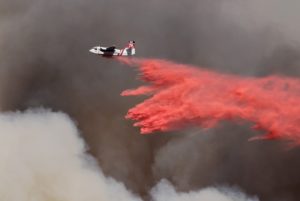This is a continuing series of posts on the latest environmental and legal developments affecting oil and gas operations and development and other industries in Los Angeles and adjacent counties, as well as the southern San Joaquin Valley. In this post, we provide an update on regulatory developments at the California Air Resources Board, the California Geologic Energy Management Division, the U.S. Environmental Protection Agency and the South Coast Air Quality Management District.
STATE AGENCIES
California Air Resources Board (CARB)
CARB’s ongoing regulatory actions affect industry generally and are focused more heavily on the oil and gas industry. Actions potentially affecting all industries include the AB 617 program, termed by CARB as the Community Air Protection Program, CRT, an evolving regulation requiring substantially increased reporting of both criteria and toxic air emissions and the Low Carbon Fuel Standard, calculating carbon intensity based on Stanford’s OPGEE model.
AB 617, CARB’s Community Air Protection Program (CAPP): CARB’s CAPP action under AB 617, implements Assembly Member Cristina Garcia’s 2017 bill, requiring CARB to identify annually communities that they find impacted by disproportionate air emissions. These communities then assemble Community Steering Committees, and the local air districts must work with these Committees to develop Community Emission Reduction Plans (CERPs). For more background on AB 617 implementation by CARB and the local air district, see Stoel’s California Environmental blogs for October 4, 2019 and May 11, 2018.
Continue Reading SOUTHERN CALIFORNIA ENVIRONMENTAL UPDATE – NEW AIR QUALITY AND OIL & GAS REGULATORY DEVELOPMENTS
 A force majeure clause in a contract permits the suspension, or in some cases, the termination, of performance by a party to the contract upon the occurrence of a force majeure event. Traditionally, a force majeure event is a matter outside of the control of the obligated party that makes it impossible or impracticable for
A force majeure clause in a contract permits the suspension, or in some cases, the termination, of performance by a party to the contract upon the occurrence of a force majeure event. Traditionally, a force majeure event is a matter outside of the control of the obligated party that makes it impossible or impracticable for